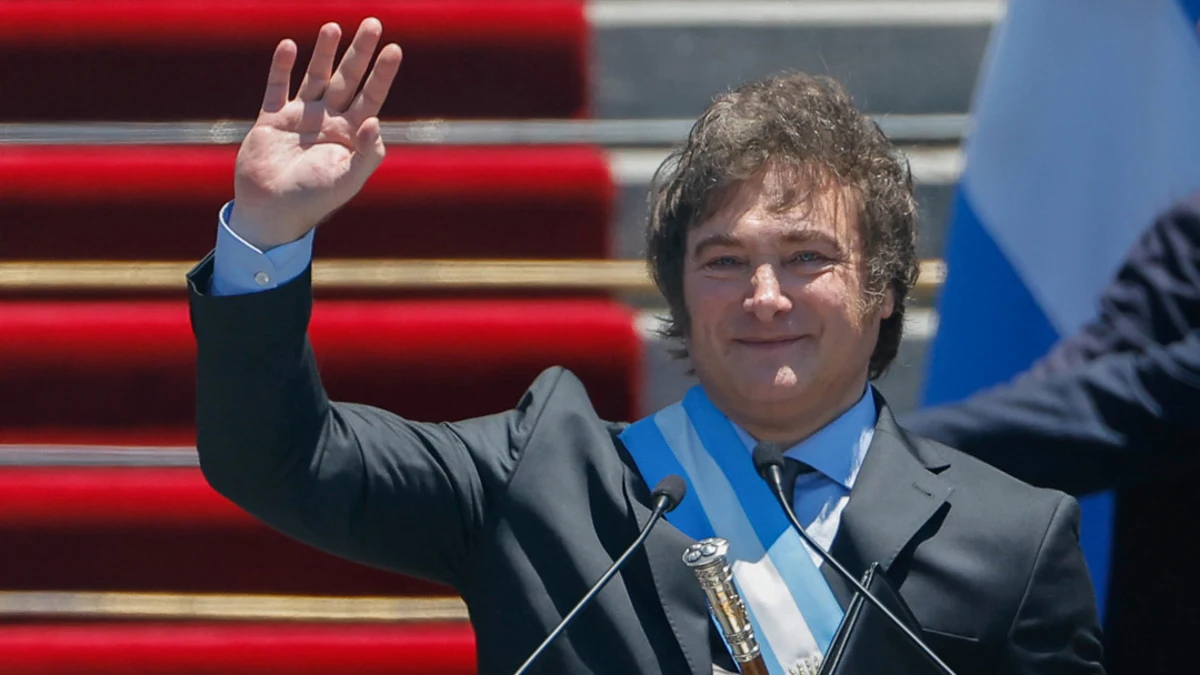
The first month of the ultraliberal Javier Milei as president of Argentina has been marked by unprecedented reformist hyperactivity, which for the moment has been received with harsh criticism, but has had almost no effect in the uncertain political, economic and social scenario of the country. “There’s no money!“Milei warned in his first presidential speech, delivered on December 10 on the steps of the National Congress and with his back to the headquarters of the Lower House. In it he outlined what until now has been his economic plan: the ‘shock ‘.
With it, he intends for Argentina to “be a world power” in the next half century. His recipe is the extreme reduction of state spending, total deregulation and the accumulation of legislative powers by the Executive. To this end, Milei, who won the runoff on November 19 against the then Minister of Economy, Sergio Massa, has presented two controversial packages of measures in less than a month. The first, the decree of necessity and urgency (DNU), signed on December 20 and announced on prime time television, contemplates the reform of more than 300 legal regulations.
Among its infinite consequences, the ‘megadecree’ – in force since the 29th – will allow the privatization of state companies, will repeal environmental laws and open the door for football clubs to be sports corporations. At the moment, Milei’s DNU faces several obstacles. The first in Parliament, where his party, La Libertad Avanza, will need the collaboration of other groups to move forward.
Secondly, the streets, which have already been the scene of several protests sponsored by the General Confederation of Labor (CGT) and other social and union organizations. The largest labor union in the country has called a half-day general strike for January 24, and ‘cacerolazos’ are once again composing the country’s soundtrack, 22 years after the 2001 crisis. But it is the judicial obstacle that has caused the most frustrated the plans of the Executive.
Last week, the National Chamber of Labor Appeals issued two precautionary measures against the DNU that temporarily suspend the labor reform included in the decree. To try to avoid these procedures, Milei announced shortly after a bill with more than 600 articles. If approved, the so-called ‘omnibus law’ will grant legislative ‘superpowers’ to the Executive until the end of 2025when Argentina will emerge from the multiple emergency situation that the project diagnoses.
The price increase figure in the last month of 2023 could exceed 30%, which would place the accumulated figure around 200% and lead Argentina to hyperinflation
The controversial plan must also go through Congress, where it has encountered criticism from the left, Peronism and the more moderate wing of the center-right coalition Together for Change. Precisely the leader of this space and Milei’s former rival in the October presidential elections, Patricia Bullrich, is, as Minister of Security, the main guarantor of the Government’s new approach in this matter, characterized by its severity to limit mobilizations.
However, the ‘shock’ has so far had little effect on the battered pockets of Argentines, who have seen inflation skyrocket, even after the very strong devaluation of the Argentine peso launched by the Minister of Economy, Luis Caputo, just two days after the start of the mandate. The presidential spokesperson, Manuel Adorni, recently admitted in his daily press conference at the Casa Rosada that the figure for the price increase in the last month of 2023 could exceed 30%, which would place the accumulated figure around 200% and would lead Argentina to hyperinflation. Beyond this, Milei has continued to offer her particular ‘show’.
The president has been lavish on television and radio in the country, offering a more moderate face than during the campaign. On at least three occasions, Milei waved from the iconic balcony of the Casa Rosada, the last one this Monday with his partner, the comedian Fátima Flórez, who accompanied him that day on his postponed ‘presidential move’ from the Hotel Libertador to the Quinta de Olivos (official residence), on the outskirts of Buenos Aires.
The president also did not avoid appearing before the cameras when he voted in the elections of the Boca Juniors club – of which he is a supporter – hours after 13 people died in Bahía Blanca (province of Buenos Aires) due to a storm of rain and wind; or when he went to his girlfriend’s imitation show at a theater in Mar del Plata. After Flórez’s performance, Milei went on stage and kissed her passionately before warning the Argentines of her immediate bitter future. “Very hard months are going to come, but we are going to stand up“, assured a Milei who seems to walk with a firm step on a ground that is too unstable.
Source: Lasexta
Ricardo is a renowned author and journalist, known for his exceptional writing on top-news stories. He currently works as a writer at the 247 News Agency, where he is known for his ability to deliver breaking news and insightful analysis on the most pressing issues of the day.












